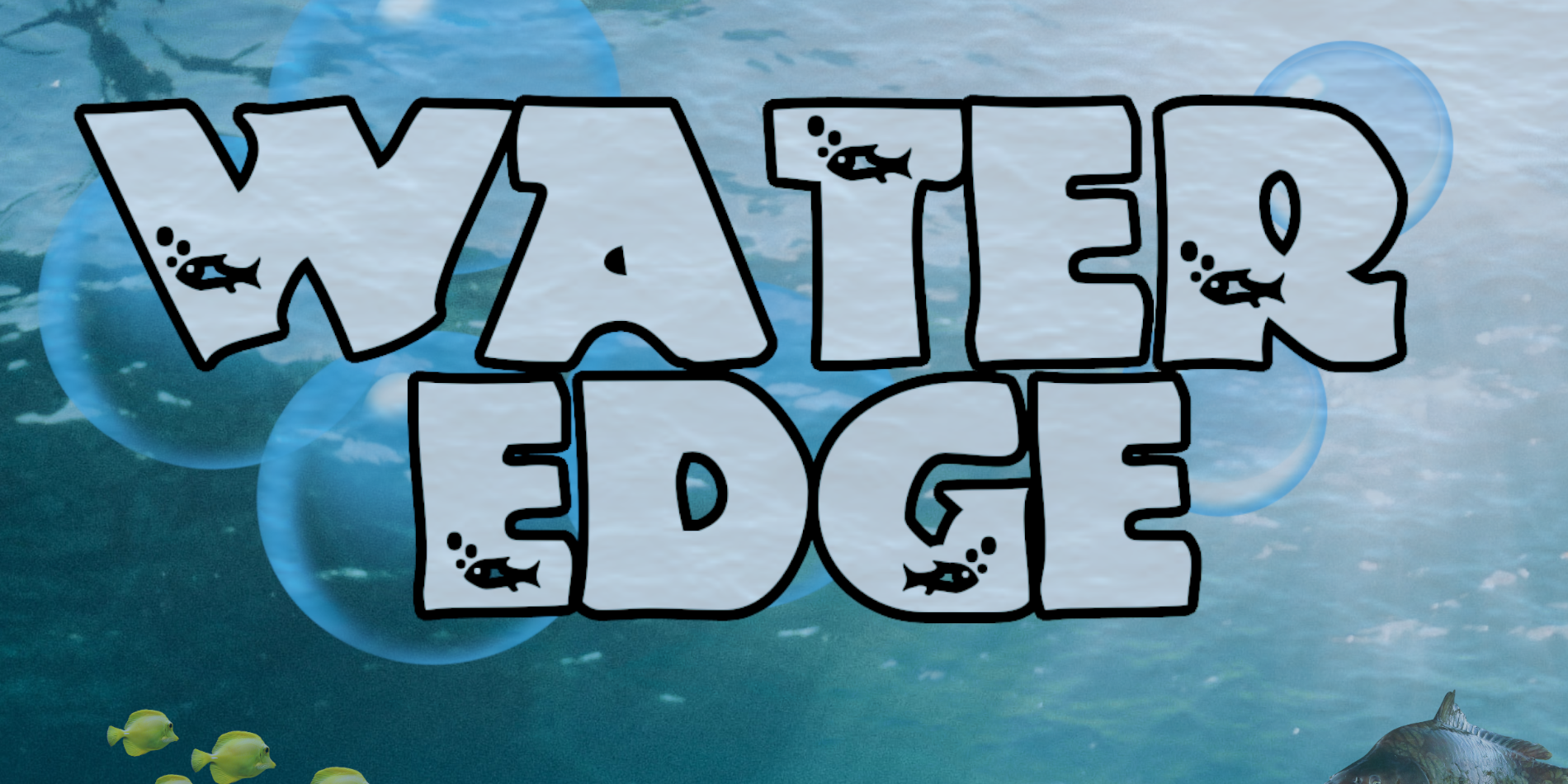I’m very proud of how well Water Edge, my fish TTRPG, turned out, so here is a quick breakdown explaining some of the game’s mechanics and how they all click together.
The Inspiration
Remember a few months back when the whole community was awash with talk about Fish Blade? If you missed it, Fish Blade was fictional TTRPG name someone came up with as an example of overly-niche indie games.
But it got me thinking. How would a fish hold a sword?
One of the most critical elements of sword dueling is maintaining your grip. You can’t win a sword fight if you keep dropping your sword! However, swords and knives are designed specifically for human bodies. So what happens when a fish tries to grip a sword and fight with it?
This thought experiment informed two of Water Edge’s most important details.
The Key Details
The first detail is that Water Edge has two ‘Health’ pools. The first is Survive which tells you how damaged your fish’s body is. The second is Slip, which signifies how tight your grip is. When your fish takes damage, you decide which pool you take the points from.
Do you use your blade to block the blow and risk getting disarmed at a crucial moment?
Or do you let yourself get hurt to protect a powerful weapon you think you’ll need later?

The second detail is that you’re playing as a fish. Because of this, you can only manipulate items with your mouth and have no way of carrying extra stuff. So you can’t bring spare weapons, healing potions, or other items with you.
The game’s mechanics and risk/reward system are built around this limitation. Players must manage their stats carefully, as they don’t want to get disarmed in the heat of combat. Because once you are disarmed, you’re easy to hit and have to quickly scavenge for a new weapon.
Advantages And Disadvantages
This is further backed up by the Advantages and Disadvantages system. Like in many TTRPGs, players can use their turn to give themself an Advantage or inflict a Disadvantage on a foe. And these can be invoked on later rolls to give you a boost.
In Water Edge, these Advantages and Disadvantages serve a second purpose, as they remain with your fish long-term until you deal with them. During downtime, players can trade in Advantages to heal themselves or improve their current weapon. To remove lingering Disadvantages, fish need to trade in health points.
Again, this forces players to carefully weigh up risks. Will you need an Advantage later, or should you use it to heal now? Is it worth taking damage to get rid of that annoying disadvantage?
These systems work together to make every encounter a tense and scrappy experience where players must carefully consider every move. One mistake could lead to the tide of battle turning and your fish quickly getting overwhelmed by your foes. As you get beaten down and hurt, the tricker it is to turn the tide back.
The Message
And this is what I wanted to capture, the idea that this is a long, painful, and challenging quest. None of the fish will finish it without scars.
Which adds to the game’s underlying environmental message. Fighting and stopping pollution isn’t easy. But it’s necessary. Meaning we must give it our all, no matter the odds.
So there you have it, how a fish ttrpg came into being. If you want to play it, you can get the game here!
Jonathon Greenall is a freelance writer, artist, and tabletop roleplaying game designer who has written for CBR, Polygon, Nintendo Life, Gayley Dreadful, Enbylife, and many other publications. They have also published several popular and highly-praised tabletop roleplaying games including “You Have One Ability….The Ability To Fuck This Up,” “Macarons, Milkshakes, And Magic,” and “Wander Wizards.”
Jonathon has always been fascinated by media, from the big hitters to the small, obscure, and often overlooked titles that linger on the sidelines, capturing both the on and off-camera stories that make these shows so fascinating.
Jonathon is also a major anime fan, having been exposed to the medium through shows like Sailor Moon and Revolutionary Girl Utena. Since then, Jonathon has maintained a passion for anime, watching most new shows each season and hunting down overlooked gems from previous ones.

